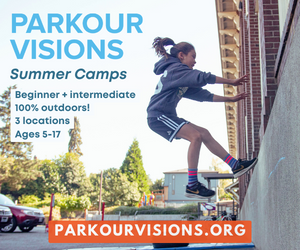So often, whether you are a teacher, a parent, or both, you will no doubt hear the words, “But why?” from your children – especially when you are telling them to do something. And what is the response that most of us will give a majority of the time? “Because I said so, that’s why.” I know I cannot be the only one who has said this. (Right? Please tell me I’m not!)
Why Do We Say This?
 We may give this response because that is the what we heard as children, or simply because we don’t feel the need to explain to our children why they need to do something that we have told them to do. Whatever our reasons are, there is a better response to the inevitable “Why?” question. The answer is really quite simple, if you choose to take the time to hear it: Tell them why.
We may give this response because that is the what we heard as children, or simply because we don’t feel the need to explain to our children why they need to do something that we have told them to do. Whatever our reasons are, there is a better response to the inevitable “Why?” question. The answer is really quite simple, if you choose to take the time to hear it: Tell them why.
If you tell your child that it is time to clean up and get ready for bed for instance, when they ask why (you know they will!), explain to them why they need to do this and why it has to be now. It might look like this:
“Well, it is getting late and I want to make sure that you make it to bed on time so that you can get enough rest to be ready for the day tomorrow. If you don’t get enough sleep, you may feel tired or cranky tomorrow and that wouldn’t feel good. And, it is important to clean up before you go to bed so you can end your day feeling like you finished out your day on the right note and your day can start tomorrow on the right note, too.”
Explaining your reasoning for telling your child to do something can be a positive experience for them because:
- It teaches them to speak up for themselves and not to just blindly follow authority. This is an important thing for children to learn because we want them to become confident and intelligent adults who can think for themselves and not feel embarrassed or ashamed to speak up when something does not make sense to them. Personally for me, I had a hard time throughout much of my young adult life speaking up when I was confused, did not understand, or did not agree with what someone was telling me. (Especially if that someone was a person of authority).
- It instills in them the idea that they matter and that they deserve explanation. When we dismiss children’s thoughts, ideas, opinions and questions, we are showing them that what they think, feel, and say does not matter. By allowing them to ask why and offering up a legitimate response to their question, we are building the idea that all of those things DO matter.
- It teaches them how to effectively and positively disagree with someone. Disagreeing with someone is something that will happen to all children as they grow into adulthood, without a doubt. It is our job to teach them NOW how to handle that while still maintaining a certain level of respect and kindness. I’m sure I don’t need to tell you how horrible our generation is at disagreeing with each other! We should all be working to create a better generation of adults than ours. By talking with children about why we make our decisions, we allow them the space to disagree and talk it out. Of course, the answer may not change, but they will feel better and more confident in themselves that they were heard.
Uncomfortable is Good! (I promise!)
This idea may make you a bit uncomfortable. Good! Raising our children, teaching them and supporting them is going to be uncomfortable at times because a lot of the time we are re-learning things that have been embedded in us from our childhoods — and that is hard!
If you feel uncomfortable thinking about this, you are right where you need to be. Look at it this way by thinking back on your childhood and asking these questions: Were you ever given the time and space to disagree with adults or people in authority? Were you taught how to disagree in the most effective and respectful way? If not, how would your thought process behind disagreements be different today if you had that growing up? Now take those thoughts and think about your children. What do you want them looking back on when they are adults?

I won’t lie to you. As a teacher, this was an uncomfortable thing for me to consider as well. When I have 16 five-year-old children asking me why they need to put away their activities and get ready to go, it seems so easy to just tell them, “Because I said so” and move on. Plus, why do they need a reason? The reason is because I told them to. But, if we really sit down and think about it, that is not what we want our children growing up thinking. At least I don’t. So I changed my thought process. Now I encourage my students to question me. I tell them all the time that if they don’t agree with something I said, tell me about it and let’s talk about it. Ever since I started telling them that, not only have they become more vocal and confident in themselves, but they have also felt more confident in their relationships with others.
So I challenge you, the next time your child asks why they need to do something you told them to do, take a breath and tell them why. And share with me how it goes! It may be hard or uncomfortable at first, but I promise you it will be worth it!


















